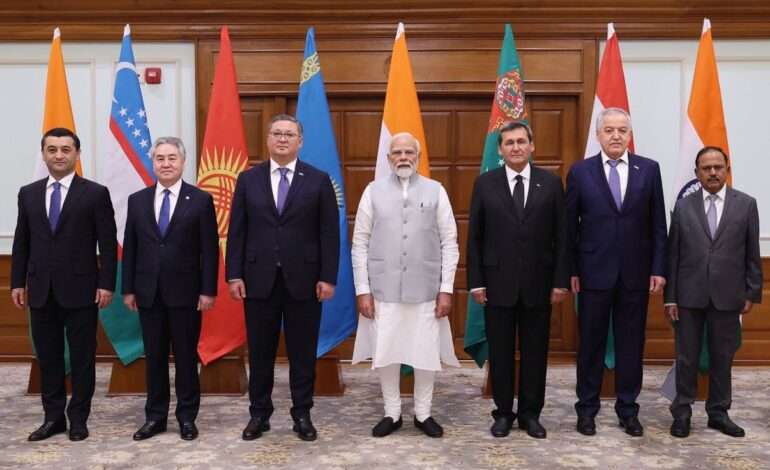
India-Central Asia partnership called ‘force multiplier’ by PM Modi
Prime Minister Narendra Modi met with the Foreign Ministers of Kazakhstan, Kyrgyzstan, Tajikistan, Turkmenistan, and Uzbekistan on Friday evening following the 4th Meeting of the India-Central Asia Dialogue held in New Delhi earlier in the day.
During the meeting, PM Modi reaffirmed that India considers its relationship with Central Asian nations a strategic priority. Citing the shared cultural and historical roots, he emphasized expanding economic ties, boosting connectivity, enhancing defence cooperation, and exploring emerging sectors like fintech, energy, health, and food security.
Calling the partnership a “force multiplier,” Modi said the alliance plays a critical role in tackling regional and global challenges, especially terrorism. “India deeply cherishes its historical ties with Central Asia. We are committed to mutual growth, stability, and prosperity,” he posted on X.
The Prime Minister’s Office noted that the visiting ministers “strongly condemned” the April 22 Pahalgam terror attack that claimed 26 lives and expressed solidarity with India against cross-border terrorism.
PM Modi also invited Central Asian leaders to attend the second India-Central Asia Summit, reinforcing India’s intent to deepen regional collaboration.
Over two days, External Affairs Minister S. Jaishankar hosted the five foreign ministers—Bakhtiyor Saidov (Uzbekistan), Rashid Meredov (Turkmenistan), Zheenbek Kulubaev (Kyrgyzstan), Sirojiddin Muhriddin (Tajikistan), and Murat Nurtleu (Kazakhstan)—to advance dialogue on security, connectivity, and counter-terrorism.
Launched in 2019 in Samarkand, the India-Central Asia Dialogue has emerged as a crucial platform for strengthening ties. The second meeting (2020) was virtual due to COVID-19, while the third, in 2021, was held in Delhi with a focus on connectivity.
The 2025 dialogue reaffirms India’s growing regional engagement amid global shifts and the need for cooperative multilateralism.